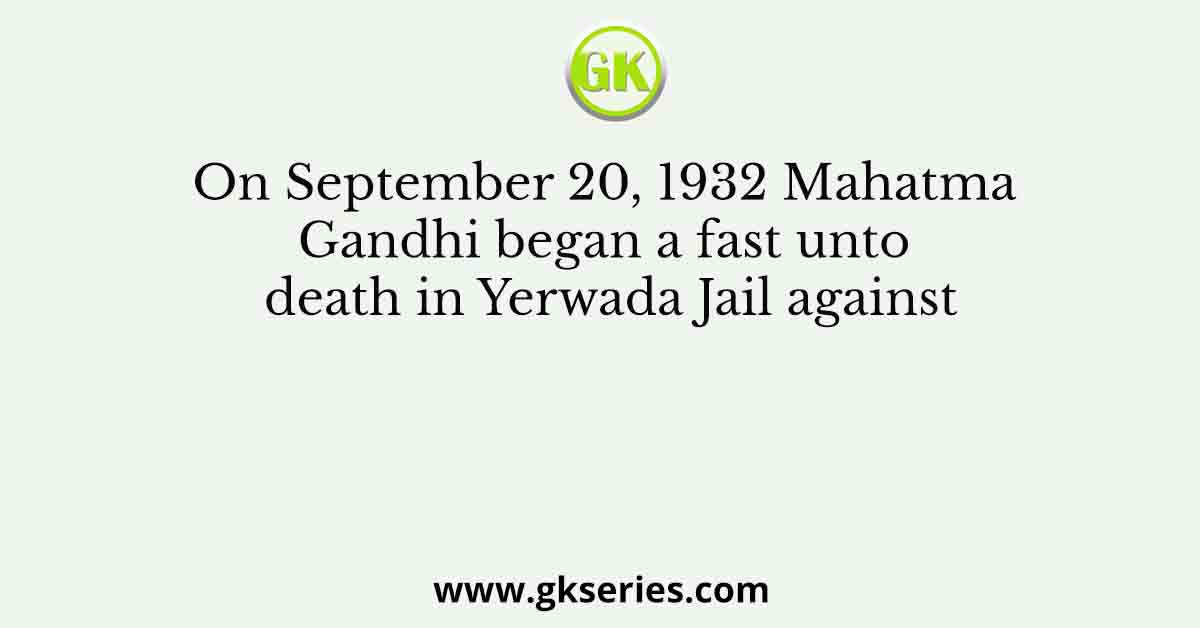
Q. On September 20, 1932 Mahatma Gandhi began a fast unto death in Yerwada Jail against
(a) British repression of the satyagrahis
(b) violation of the Gandhi-Irwin Pact
(c) communal Award of Ramsay Macdonald
(d) communal riots in Calcutta
Ans: (c) communal Award of Ramsay Macdonald
Explanation: The correct answer is (c) communal Award of Ramsay Macdonald.
On September 20, 1932, Mahatma Gandhi began a fast unto death in Yerwada Jail to protest against the Communal Award of Ramsay Macdonald. The Communal Award was a proposal put forward by the British Prime Minister Ramsay Macdonald in 1932, which aimed to grant separate electorates for different religious communities in British India.
Gandhi strongly opposed the Communal Award as he believed that it would further divide the Indian population along religious lines and hinder the goal of national unity. He saw it as a threat to Hindu-Muslim harmony and feared that it would perpetuate communal tensions.
To draw attention to his opposition and to put pressure on the British government, Gandhi undertook a fast unto death. This act of self-sacrifice was a powerful means for Gandhi to convey the seriousness of his protest and to mobilize public support against the Communal Award.
Therefore, option (c) is the correct answer.





